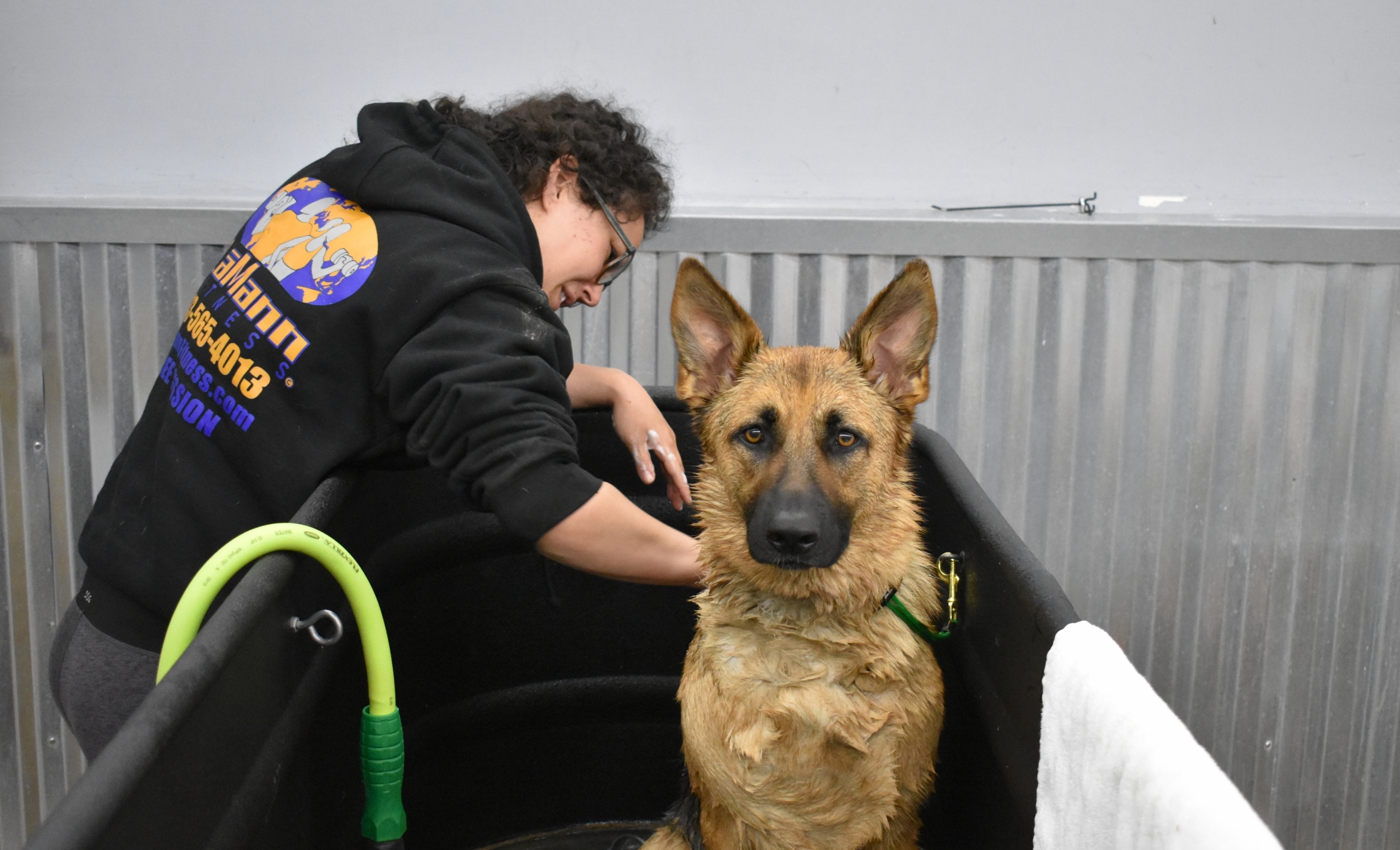Over Grooming
Previously we discussed the do’s and don’ts of grooming, but is it possible to groom too often?
Grooming is an essential part of your pet’s life. There are a couple of factors that play a role in how often to groom your pet. Skin health, coat type, (long, short, medium, curly, wavy, thick, etc.), activity level, health, and breed should all be considered. What happens if we groom our pets too frequently? Grooming too frequently can result in damage to the hair follicles, dry irritated skin, and can also lead to bacterial and/or fungal infections as well.
A topic that can go a long way when it comes to how often or how often not to groom our pets is the skin microbiome. Your pets’ skin houses a delicate balance of good bacteria and oils that act as a natural barrier to environmental hazards. Just like our own skin, it’s an integral part of the immune system. Bathing too frequently with shampoo strips those natural oils from the skin, disrupting the skin microbiome.
*Expert Tip: To avoid drying out the skin, bathe your dog with lukewarm water (not hot) and take extra time to rinse shampoo out thoroughly.
When the skin and gut microbiomes are disrupted it can result in:
- Overgrowth of yeast
- Allergies
- Dry or Itchy skin
- Hot spots
- Fungal infections
The continuous use of antibiotics and antifungals can make the skin vulnerable to bad bacteria. Let your pet play in the dirt and let your pet’s skin naturally clean itself rather than giving a bath every time dirt is seen. If your pet is muddy or too dirty, rinse with just water or use grooming wipes and a brush to remove loose dirt and debris. Supplementing with probiotics and omega 3’s can also help keep the coat healthy and hydrated.
Our pets have natural oils in their skin to maintain healthy coats. Yes, grooming is needed occasionally but in the meantime, let your pet’s skin microbiome handle the rest!
To learn more about keeping your pet’s coat healthy, click here.
*This article is for informational purposes only. It is not meant to provide medical advice or replace the advice of a qualified veterinarian.






